Retro computer roadshow bringing IT skills to NI schools
- Published
Old video games, 8-bit computers and mobile phones are helping to inspire pupils to consider a career in IT
Pupils are getting hands on with vintage technology as a retro computing roadshow makes its way across Northern Ireland.
Learners have been amazed by 8-bit computers, video games and early examples of the mobile phone.
The Code Show aims to educate and inspire students to consider a career within the IT industry.
There is a shortage of IT skills in Northern Ireland and a relatively low number of girls study computing.
This has been put down to cultural stereotypes.
Gareth O'Hare from Belfast's Wellington College is behind the proposal to introduce the roadshow to Northern Ireland.
"I want to take this around schools to give that little spark, I want children to get that ignition, that interest that might make them choose a career in IT," he said.
The Code Show, external was first conceived by Gary McNab who has more than 20 years experience in the STEM (science, technology, engineering and mathematics) industries.
Speaking on his motivation for launching The Code Show, he said: "Delivering the computing curriculum in a local primary school, I identified the National Curriculum makes no mention of how Britain entered the computing age.
"With over 300 machines and my passion, I believe I can offer schools an affordable and alternative experience in their own setting, providing the whole school with a day of learning and hands-on experiences."
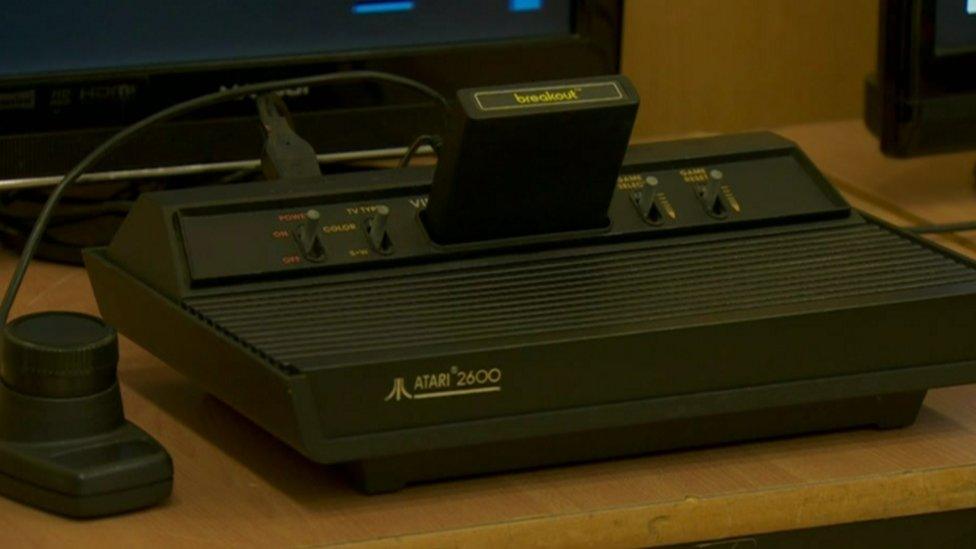
The Atari 2600 dominated the games industry during the 1980s
The travelling tech museum is expected to visit 10 different schools over the course of two weeks and Mr O'Hare says it was well received at its first location.
"The pupils were actually just as excited as us; we noticed the expressions on their faces when they came into the hall. They just wanted to experience everything."
Students amused by the were amused by the primitive nature of the technology but could appreciate how advanced it must once have been.
For most, the world's first electric car - a Sinclair C5 - proved to be a show-stopper.
Year Nine student Jason Allen played a game of 1980s classic, Manic Miner, and was surprised by how enjoyable he found it.
"It's fun, difficult, not like most games I've played. It's the graphics I expected, I enjoyed it a lot and I'd play it again.
"It doesn't seem basic because the code behind it was big for its time. The fact this has been made [at the time it was] is quite a shock to me."
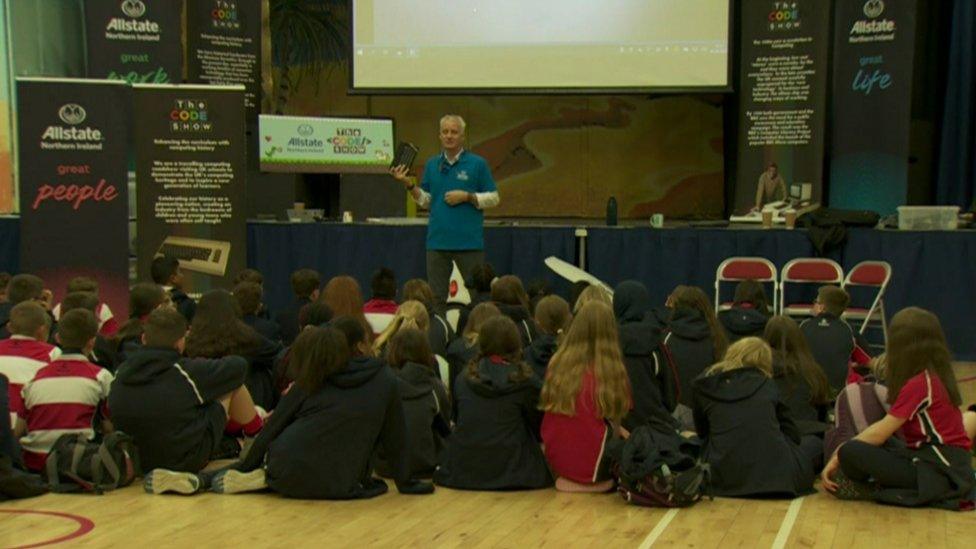
The Code Show made its first Northern Ireland visit last week and has travelled to 10 different schools
Explaining the shortage of IT skills, Mr McNab says it can often be a male-dominated industry with surveys finding that female participation is far behind, external.
"The element lacking is the number of girls choosing to pursue IT subjects at GCSE and A-level," he said.
To address this, his college runs girls' coding clubs, and has introduced programming during Key Stage Three to help develop pupils' understanding and interest in the subject from a younger age.
"Coders are always in demand, but like medicine, IT has a wide and varied degree of specialisms.
"Cyber security is a massively growing sector and threat. A massive career sector is growing in this part of the industry and I know one success story from here."
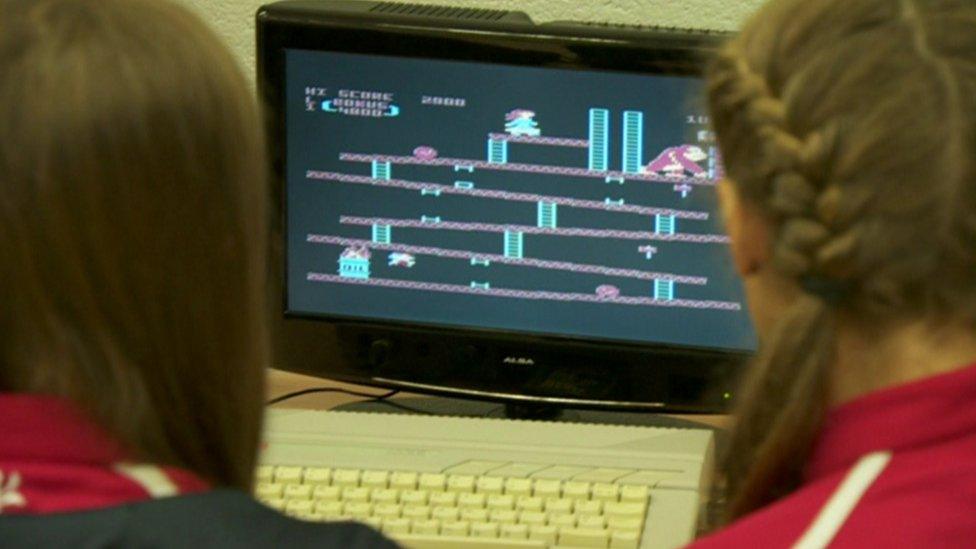
The travelling exhibition intends to inspire students to pursue a career in IT
One such success story is Sophie Kane who has just left the college to undertake a software development and computer systems apprenticeship.
"I never really was interested in IT, I was introduced to coding and found it quite hard," she said.
"It was only when I was introduced to the visual applications through gaming, Xboxes, PlayStations… it sparked something.
"You see that it's all maths and text. Anything you want, you can make into a game if you have those skills.
"It doesn't tend to be one that a lot of women go towards."
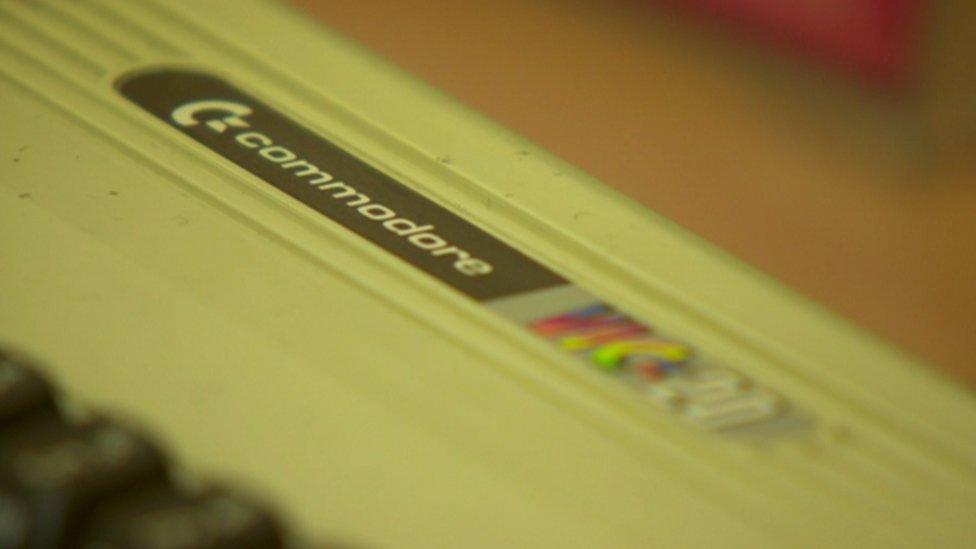
The classic Commodore was one of pieces of technology on display
Speaking on the change of curriculum over the years, Mr O'Hare said: "Six or seven years ago, the curriculum interest in Computer Science started to rise.
"[This event] is reminding pupils that the growing IT industry in Northern Ireland is not a job, it's a career, it's better paid than most.
"It's a lifetime career and by employing female role models, it may help boost the uptake of girls in Computer Science."
Related topics
- Published18 January 2022
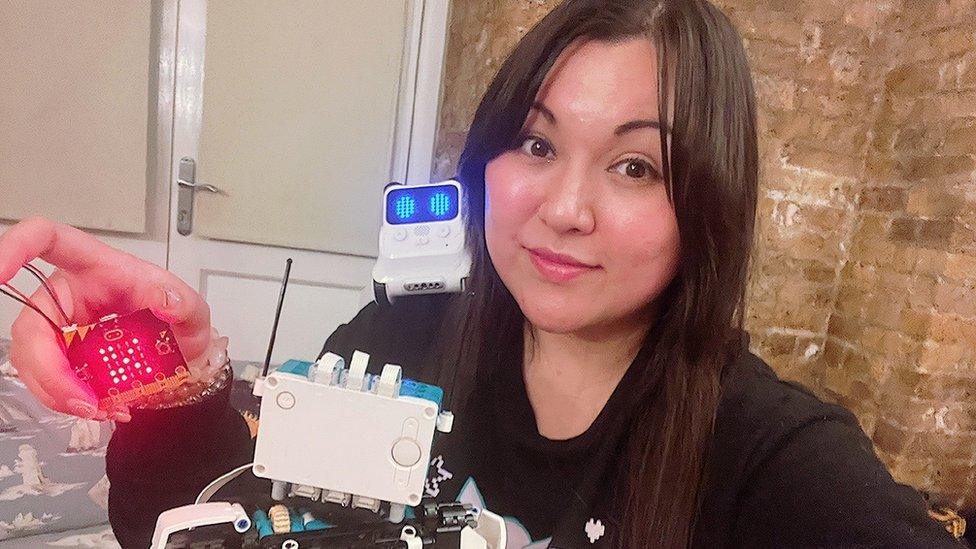
- Published22 March 2021
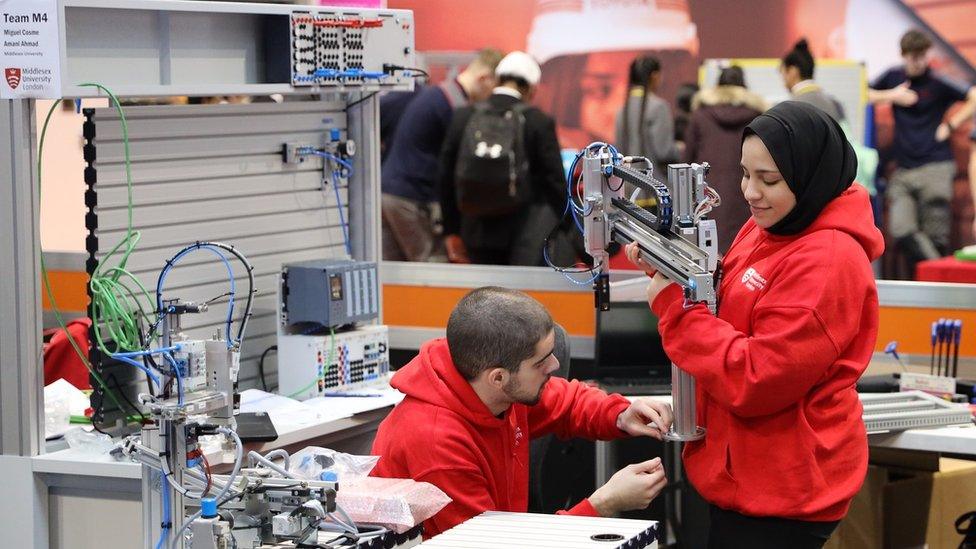
- Published27 February 2012